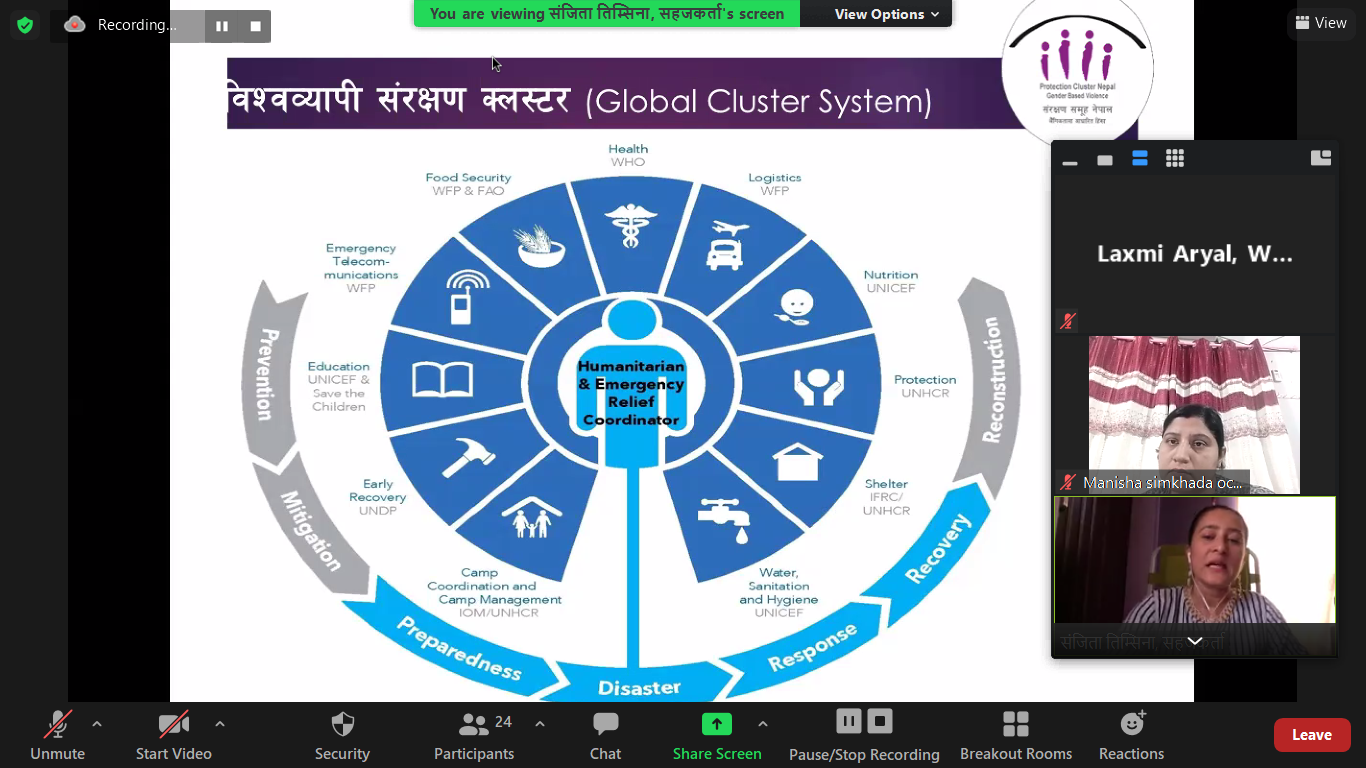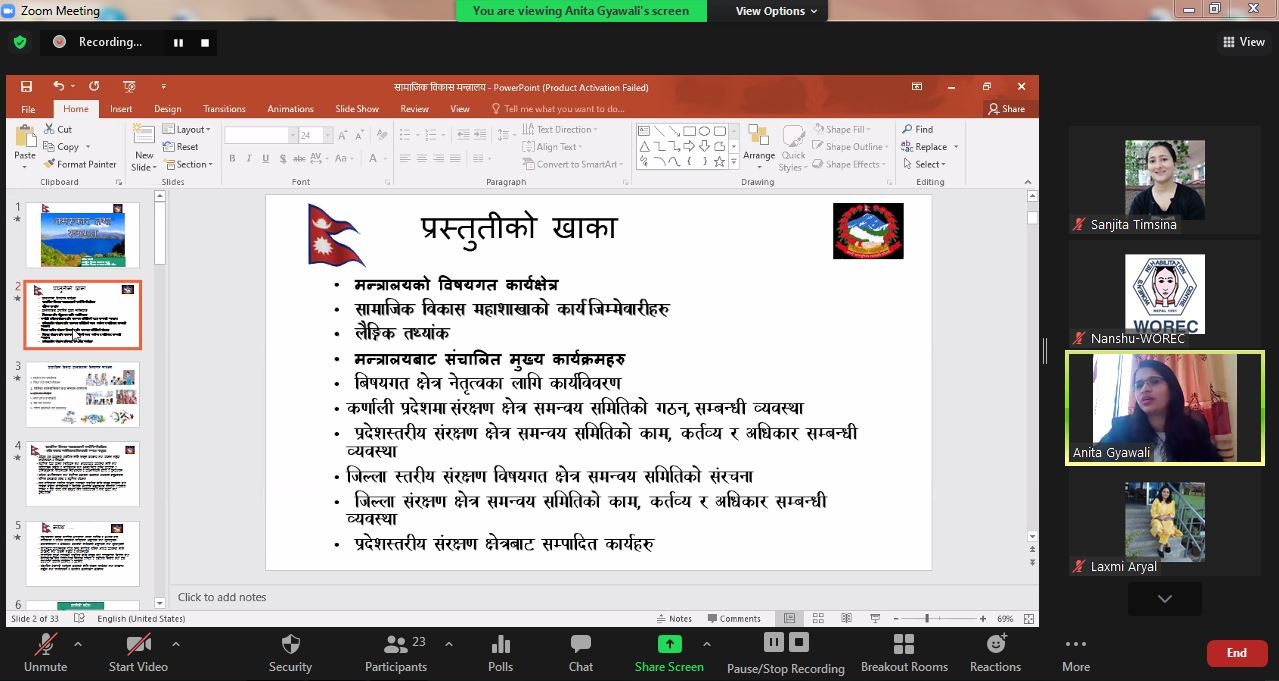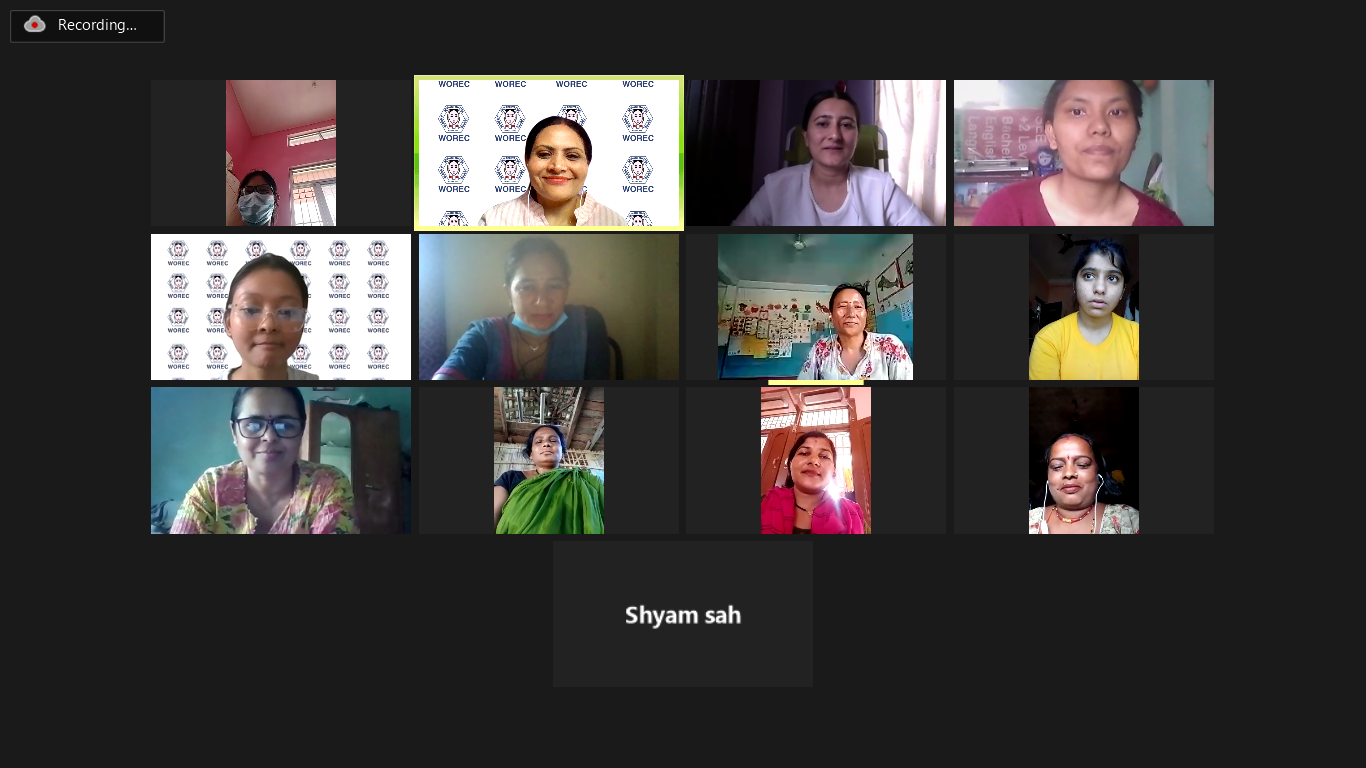.png)
Women Rehabilitation Centre (WOREC) conducted two days of province-level and district level virtual training to Gender-based violence (GBV) actors about Basic Humanitarian Principles and Safe Referral based on the modules developed by GBV sub-cluster in close coordination with expert members under the GBV sub-cluster, including WOREC. The training was organized in partnership with the United Nations Population Fund (UNFPA) under the humanitarian response program of Gender-Based Violence.
The main objectives of the training were to roll out the prepared modules on Basic Humanitarian Principles and Safe Referral, have open space for participants to discuss the existing context of respective areas and sensitize the participants to initiate similar training in their respective areas.

The province-level virtual training was conducted in Province 2, Karnali Province, and on May 10, 11, May 25,26 and June 9,10, respectively. The district-level virtual training was conducted for Siraha on 15, 16 June and Saptari on 17, 18 June.
During the interactive sessions, participants highlighted numerous grass root level problems of GBV survivors and GBV actors.

The discussion pointed out the challenges faced by GBV survivors, including being confined inside homes due to the restriction of movement and not getting justice due to deep-rooted social norms. The participants also highlighted how service providers such as police personals and judicial committees don't always cooperate and support survivors but instead encourage them to tolerate violence. Apart from that, gender and disable friendly services, case sensitization and survivor-centric approach are also lacking in case management.
Likewise, the participants also stated that the political interference into any GBV case, survivors and services are distinctly high due to which survivors are denied justice, and the perpetrators don't obey many decisions made by the court; survivors also do not get necessary services that are ruled out from the court. Many areas even lack proper GBV services such as safe houses and suitable referral mechanisms to conduct safe referrals for GBV survivors and children. It was jointly conveyed that the plans, policies and programs made by any level government aren't inclusive regarding the intersectional population and their need. In contrast, the ones available aren't well implemented but instead only documented.

The participant populace, comprised of people with disabilities and LGBTIQ+ individuals, expressed gratitude for including them with the platform to voice out their issues. The participants also acknowledged the module's contents and conveyed it as being useful for the current context. "There are lot of things/issues that we ignore daily thinking it is small, but we forget that such issues can come around/upon us so this session provided me with a time for self-reflection and encouraged me to consider about humanitarian principles," said one participant during the discussion session.
All five training sessions were facilitated by a technical expert of UNFPA and WOREC whereas, the province level training was additionally facilitated by representatives from the Ministry of Social Development and the National Human Rights Commission from respective provinces where they shared their plans and policies to prevent plus respond the GBV in times of emergency.
Both province level and district level training incorporated a total of 154 GBV actors including deputy mayors, district administration officers, officers from the department of women and children, advocates, judicial committee members, police personals, media workers, WHRDs, psychosocial counsellors, a safe house in charges, case managers, staff nurses from OCMC, members of GBV network, members of women's network, youths from youth network/child club, teachers, CBOs along with several participants involved in various Associations, NGO's and INGO's like VSO, Aasaman Nepal, PIN, INSEC, Mukti Nepal, Blue Diamond Society, Human Welfare Society, Kalyankari Apaanga Sewa Sangh, Nepal Disabled Women Association, SOSEC Nepal, Aawaj, National Human Rights Commission, Save The Saptari, SAWAL Nepal, Her Place, Apanga Mahila Sangh, FODID Nepal, Jestha Nagrik Sangh, Redcross, Mahila Sahayogi Samuha, Sahayogi Samaj Nepal, Pragatishil Samaj Sunsari, Mahila Punarsthapan Sewa Kendra Nepal, Samagra Janutthan Kendra.